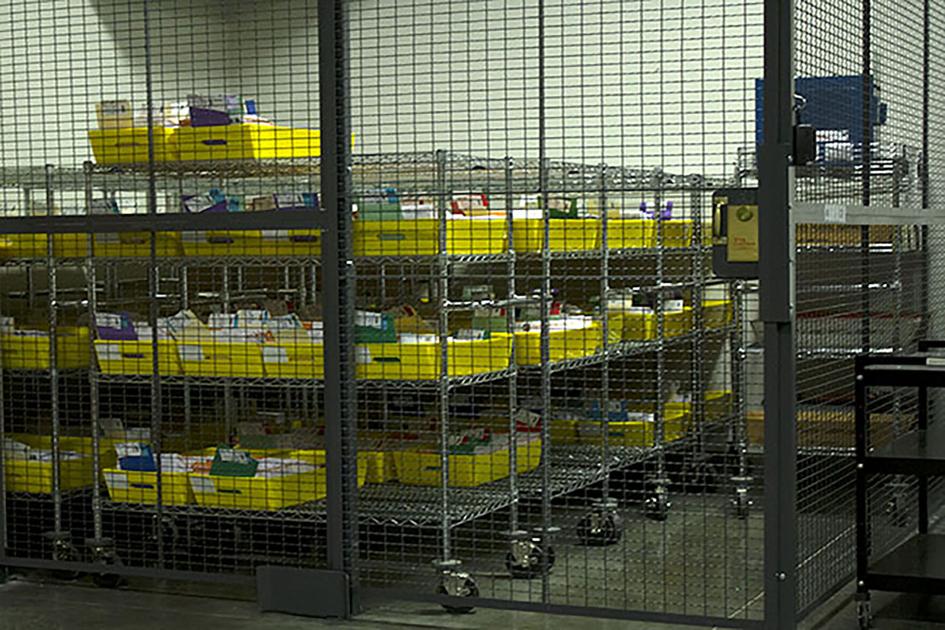Judicial Watch files lawsuit against state over voter rolls, but it’s misleading, expert says

The conservative group Judicial Watch has filed a lawsuit against Colorado Secretary of State Jena Griswold over claims that Colorado has more voters than it has people. But the lawsuit lacks merit on a number of fronts, according to attorney Christopher Jackson of Holland & Hart.
The lawsuit was filed in US District Court on Monday. It attempts to force Colorado “to clean up its voter rolls,” according to a Judicial Watch statement.
The lawsuit’s premise is based on several studies, according to the Judicial Watch statement:
- A 2019 study showed that 40 of Colorado’s 64 counties had voter registration rates exceeding 100% of the eligible citizen voting-age population. The share of Colorado counties with registration rates exceeding 100% was the highest in the nation.
- A study from last month confirmed that as many as 39 Colorado counties had registration rates exceeding 100% at any one time during the relevant reporting period.
- Data that Colorado itself provided to the federal Election Assistance Commission showed that Colorado was lagging in the processing and removal of certain classes of ineligible registrations belonging to those who had moved out of state.
- In eight Colorado counties, more than one in six registrations belonged to an inactive voter.
Judicial Watch claimed that such statistics “indicate an ongoing, systemic problem with Colorado’s voter list maintenance efforts,” and the state’s failure to comply with voter list maintenance obligations “injures lawfully registered voters by ‘undermining their confidence in the integrity of the electoral process, discouraging their participation in the democratic process and instilling in them the fear that their legitimate votes will be nullified or diluted.’ “
The lawsuit asks the Court to require the state to “develop and implement a general program that makes a reasonable effort to remove the registrations of ineligible registrants from the voter rolls in Colorado.”
Judicial Watch President Tom Fitton said that “it is a direct threat to free and fair elections that with record numbers of mail-in ballots this cycle, over half of Colorado counties have more people registered to vote than are eligible to register,” which could lead to voter fraud in November.
But requiring an action plan 30 days before the election isn’t going to happen, Jackson said. The National Voting Rights Act required that such actions be completed 90 days before the Nov. 3 election, or around August 3.
Jackson said there are a lot of requirements and regulations on how states manage voter rolls, including that they must make a “reasonable effort” to ensure the rolls are up to date. Federal law also dictates how someone would be removed from the voter rolls, Jackson explained.
“You have to send them a postcard, allowing them to respond. If person doesn’t respond, and does not vote in next two federal elections, then can remove from voter list.” That’s relatively difficult to do, he said.
The Judicial Watch lawsuit ignores those requirements, just saying that there are too many people registered to vote in Colorado. Jackson said the lawsuit is largely conjecture, taking data from sources that measure different things and then mashing it all together to reach conclusions about voter registration numbers.
“You can’t just combine different sources of data and assume they mix well,” he said. “It’s hard for me not to see this as an effort to call into question the results of the election.”
Judicial Watch has attempted to raise the issue of Colorado’s voter rolls before. Last December, they sent a letter to Jefferson County Clerk and Recorder George Stern, warning him that they would file a lawsuit if he didn’t clean up the county’s voter rolls of inactive voters. They cited much of the same types of data as they did with Monday’s lawsuit.
The lawsuit never happened. Stern told Westword last December that Judicial Watch used “questionable math to imply that we have more registered voters than are eligible or that we are not complying with federal law as it relates to the removal of inactive voters. Both contentions are patently false.”
Judd Choate, elections director for the secretary of state’s office, told Westword that Judicial Watch doesn’t understand federal voting laws.
“You can’t just remove somebody because you don’t like their voter file,” he said. “You have to remove them under federal law.”
Judicial Watch bills itself as a conservative, non-partisan educational foundation that promotes “transparency, accountability and integrity in government, politics and the law.” The Hill reported Saturday that Fitton was named by President Trump to the D.C. Commission on Judicial Disabilities and Tenure, which can remove judges for misconduct or mental or physical incapacitation.
Fitton has been recently linked to QAnon, the far-right conspiracy theory group, and has claimed the “deep state” is trying to unseat Trump, according to The Hill. Fitton also raised questions about whether Democratic vice-presidential nominee Sen. Kamala Harris is eligible to become vice president, based on her parents’ immigration status at the time of her birth.
.@Twitter censors Q material but actively promotes propaganda on behalf of violent communist insurrectionists who are trying to kill and injure federal law enforcement and burn down a federal courthouse in Portland.
— Tom Fitton (@TomFitton) July 25, 2020
Judicial Watch declined an opportunity to comment on the lawsuit.
*** This article has been archived for your research. The original version from coloradopolitics.com can be found here ***


